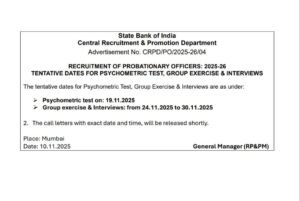Study Notes are really essential and effective while preparing for any competitive exam. We all have been making and studying through study notes since our childhood. Its one of the most important steps of preparation and a very effective tool for last minute revision. Your mind collects data of random details in the form of keywords and memory maps visualized during preparation. Jotting down main phrases & keywords, making memory maps and highlighting important facts help one speed up the learning process.
ARTICLES
DEFINITE AND INDEFINITE ARTICLES
In English Language there are three articles: a, an, and the. Articles are used before nouns or noun equivalents and are a type of adjective. The definite article (the) is used before a noun to indicate that the identity of the noun is known to the reader. The indefinite article (a, an) is used before a noun that is general or when its identity is not known. There are certain situations in which a noun takes no article.
· Definite article
the (before a singular or plural noun)
· Indefinite article
a (before a singular noun beginning with a consonant sound)
an (before a singular noun beginning with a vowel sound)
§ Countable nouns – refers to items that can be counted and are either singular or plural
§ Uncountable nouns – refers to items that are not counted and are always singular
COUNTABLE NOUNS AND UNCOUNTABLEABLE NOUNS
For the purpose of understanding how articles are used, it is important to know that nouns can be either countable (can be counted) or uncountable (indefinite in quantity and cannot be counted). In addition, countable nouns are either singular (one) or plural (more than one). Uncountable nouns are always in singular form.
Following are the three specific rules which explain the use of definite and indefinite articles.
Rule 1 – Specific identity not known: Use the indefinite article a or an only with a singular countable noun whose specific identity is not known to the reader. Use a before nouns that begin with a consonant sound, and use an before nouns that begin with a vowel sound.
Use the article a or an to indicate any un-specified member of a group or category.
We are looking for an apartment.
Use the article a or an to indicate one in number (as opposed to more than one).
I own a cat and two dogs.
Use the article a before a consonant sound, and use an before a vowel sound.
a boy, an apple
◊ Sometimes an adjective comes between the article and noun:
an unhappy boy, a red apple
The plural form of a or an is some. Use some to indicate an unspecified, limited amount (but more than one).
an apple, some apples
Rule 2 – Specific identity known: Use the definite article the with any noun (whether singular or plural, countable or uncountable) when the specific identity of the noun is known to the reader, as in the following situations:
Use the article the when a particular noun has already been mentioned previously.
I ate an apple yesterday, the apple was juicy and delicious.
Use the article the when an adjective, phrase, or clause describing the noun clarifies or restricts its identity.
The boy sitting next to me raised his hand.
Use the article the when the noun refers to something or someone that is unique.
Example: the theory of relativity
Rule 3 – All things or things in general: Use no article with plural countable nouns or any uncountable nouns used to mean all or in general.
Trees are beautiful in the fall. (All trees are beautiful in the fall.)
He was asking for advice. (He was asking for advice in general.)
Additional Information Regarding the Use of Articles
· When indicating an unspecified, limited amount of a countable or uncountable noun, use some.
Example: My cousin was seeking some advice from a counselor (not advice in general or advice about everything, but a limited amount of advice).
Example: There are some drops of water on the table (a limited number, but more than one drop).
· Uncountable nouns are those which usually cannot be counted. Following are some common examples
◊ Certain food and drink items: flour, fruit, ice cream, lettuce, meat, milk, oil, pasta, rice, salt, spinach, sugar, tea, water, wine, yogurt
◊ Most abstract nouns: advice, anger, beauty, confidence, courage, employment, fun, happiness, health, honesty, information, intelligence, knowledge, love, poverty, satisfaction, truth, wealth
◊ Areas of study: history, math, biology, etc.
◊ Languages: Chinese, Spanish, Russian, English, etc.
Geographical names are confusing because some require the and some do not.
◊ Use the with: large regions, deserts, peninsulas, oceans, seas, gulfs, canals, rivers, mountain ranges, groups of islands
Example: the Gobi Desert
the United Arab Emirates
◊ Do not use the with: streets, parks, cities, states, etc. Example: Japan, Chico





 52946 Applications Registered for NABARD...
52946 Applications Registered for NABARD...
 BOB Apprentice Exam Date 2025 Out, Check...
BOB Apprentice Exam Date 2025 Out, Check...
 SBI PO Interview 2025 Dates Out, Check C...
SBI PO Interview 2025 Dates Out, Check C...









